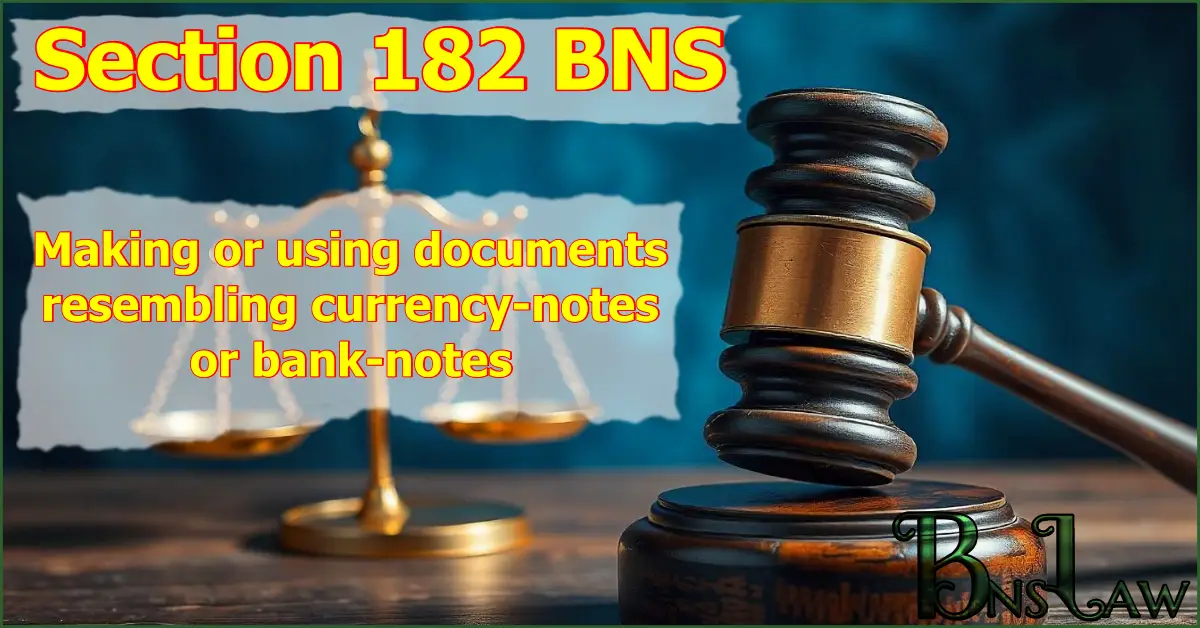Section 182 BNS | BNS 182
182(1) BNS
Whoever makes, or causes to be made, or uses for any purpose whatsoever, or delivers to any person, any document purporting to be, or in any way resembling, or so nearly resembling as to be calculated to 63 deceive, any currency-note or bank-note shall be punished with fine which may extend to three hundred rupees.
182(2) BNS
If any person, whose name appears on a document the making of which is an offence under sub-section (1), refuses, without lawful excuse, to disclose to a police officer on being so required the name and address of the person by whom it was printed or otherwise made, he shall be punished with fine which may extend to six hundred rupees.
182(3) BNS
Where the name of any person appears on any document in respect of which any person is charged with an offence under sub-section (1) or on any other document used or distributed in connection with that document it may, until the contrary is proved, be presumed that the person caused the document to be made
READ OTHER SECTIONS OF CHAPTER X — OF OFFENCES RELATING TO COIN, CURRENCY-NOTES, BANK-NOTES, AND GOVERNMENT STAMPS
FAQs of BNS Section 182
-
182 BNS punishment and fine
Fine under Section 182 of the BNS—
182(1): Fine of 300 rupees.
182(2): Fine of 600 rupees. -
182 BNS cognizable or not
The offence under Section 182 of the BNS is non-cognizable.
-
182 BNS bailable or not
The offence under Section 182 of the BNS is bailable.
-
182 BNS trial court
Offence specified in Section 182 of the BNS is triable by Any Magistrate.
Important Points
- Cognizable Offences: These are offences where a police officer can arrest a person without a warrant.
- Non-Cognizable Offences: These are offences where a police officer cannot arrest a person without a warrant.
- Bailable Offences: These are offences where the accused can get bail from the police station itself. All bailable offences are listed in the First Schedule of the Bharatiya Nagarik Suraksha Sanhita (BNSS).
- Non-Bailable Offences: Offences in which bail is not granted directly from the police station but after hearing the case in the court, the judge decides when bail will be granted. All non-bailable offences are listed in the first schedule of the Bharatiya Nagarik Suraksha Sanhita (BNSS).
- In the above FAQ, “trial court” means the court that has jurisdiction to try the offence.
- In the above FAQ, the expression “Magistrate of the first class” and “Any Magistrate” does not include Executive Magistrates.
Read other Sections of the BNS
Reference Link: New Criminal Laws (BNS), Ministry of Home Affairs







